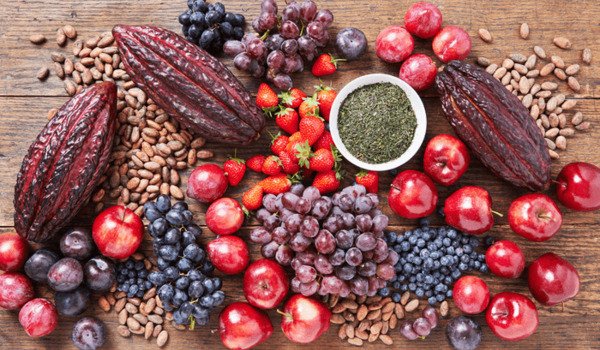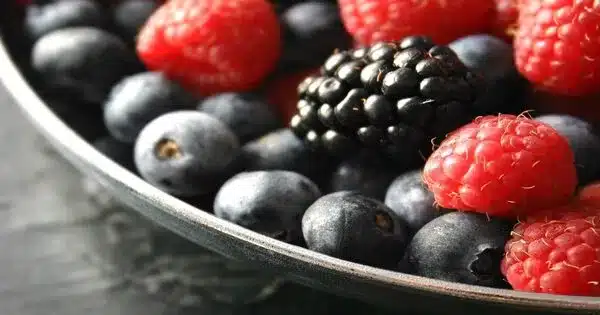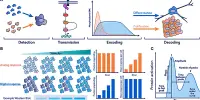Flavanols are a type of flavonoid, which is a class of plant compounds with antioxidant and anti-inflammatory properties. They can be found in a variety of foods such as cocoa, tea, berries, and some fruits and vegetables. Several studies have found that flavanols, particularly those found in cocoa, may improve cognitive function and memory.
According to a large study of older adults, age-related memory loss is likely caused in part by a lack of flavanols, which are nutrients found in certain fruits and vegetables. A large-scale study led by Columbia and Brigham and Women’s Hospital/Harvard researchers is the first to show that a diet low in flavanols (nutrients found in certain fruits and vegetables) contributes to age-related memory loss.
The study discovered that flavanol intake among older adults correlates with scores on tests designed to detect memory loss due to normal aging and that replenishing these bioactive dietary components improves performance on these tests in mildly flavanol-deficient adults over the age of 60.
“The improvement among study participants with low-flavanol diets was substantial, and it raises the possibility of using flavanol-rich diets or supplements to improve cognitive function in older adults,” says Adam Brickman, Ph.D., professor of neuropsychology at Columbia University Vagelos College of Physicians and Surgeons and co-leader of the study.
The improvement among study participants with low-flavanol diets was substantial, and it raises the possibility of using flavanol-rich diets or supplements to improve cognitive function in older adults.
Adam Brickman
The discovery also lends credence to the emerging notion that the aging brain, like the developing brain, requires specific nutrients for optimal health.
“The identification of nutrients critical for the proper development of an infant’s nervous system was a crowning achievement of 20th-century nutrition science,” says Scott Small, MD, the Boris and Rose Katz Professor of Neurology at Columbia University’s Vagelos College of Physicians and Surgeons.
“As we live longer lives in the twenty-first century, research is beginning to reveal that different nutrients are required to fortify our aging minds.” Other researchers can use our study, which relies on biomarkers of flavanol consumption, as a template to identify additional, necessary nutrients.”

Age-related memory loss linked to changes in hippocampus
The current study builds on over 15 years of research in Small’s lab that linked age-related memory loss to changes in the dentate gyrus, a specific area within the brain’s hippocampus that is essential for learning new memories, and demonstrated that flavanols improved function in this brain region.
Additional research in mice discovered that flavanols, specifically a bioactive substance in flavanols known as epicatechin, improved memory by stimulating the growth of neurons and blood vessels in the hippocampus.
Next, Small’s team tested flavanol supplements in people. One small study confirmed that the dentate gyrus is linked to cognitive aging. A second, larger trial showed that flavanols improved memory by acting selectively on this brain region and had the most impact on those starting out with a poor-quality diet.
Study methods
For three years, over 3,500 healthy older adults were randomly assigned to either a daily flavanol supplement (in pill form) or a placebo pill. The active supplement contained 500 mg of flavanols, including 80 mg of epicatechins, which adults should get from food.
At the start of the study, all participants filled out a survey about the quality of their diet, which included foods high in flavanols. Participants then completed a series of web-based activities designed and validated by Brickman in their own homes to assess the types of short-term memory governed by the hippocampus. The tests were repeated after the first, second, and third years. The majority of participants identified as non-Hispanic and white.
People with mild flavanol deficiency benefited from flavanol supplement
Memory scores improved only slightly for the entire group taking the daily flavanol supplement, despite the fact that the majority of them were already eating a healthy diet rich in flavanols. Participants who reported consuming a poorer diet and having lower baseline levels of flavanols saw their memory scores increase by an average of 10.5% compared to placebo and 16% compared to their baseline memory at the end of the first year of taking the flavanol supplement. Annual cognitive testing revealed that the improvement seen in the first year was sustained for at least two more years.
According to the researchers, the findings strongly suggest that flavanol deficiency is a driver of age-related memory loss because flavanol consumption correlated with memory scores and flavanol supplements improved memory in flavanol-deficient adults.
The new study’s findings are consistent with those of a previous study, which found that flavanol supplements did not improve memory in a group of people with varying levels of baseline flavanol. The previous study did not separately examine the effects of flavanol supplements on people with low and high flavanol levels.
















